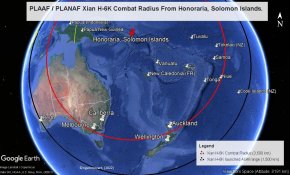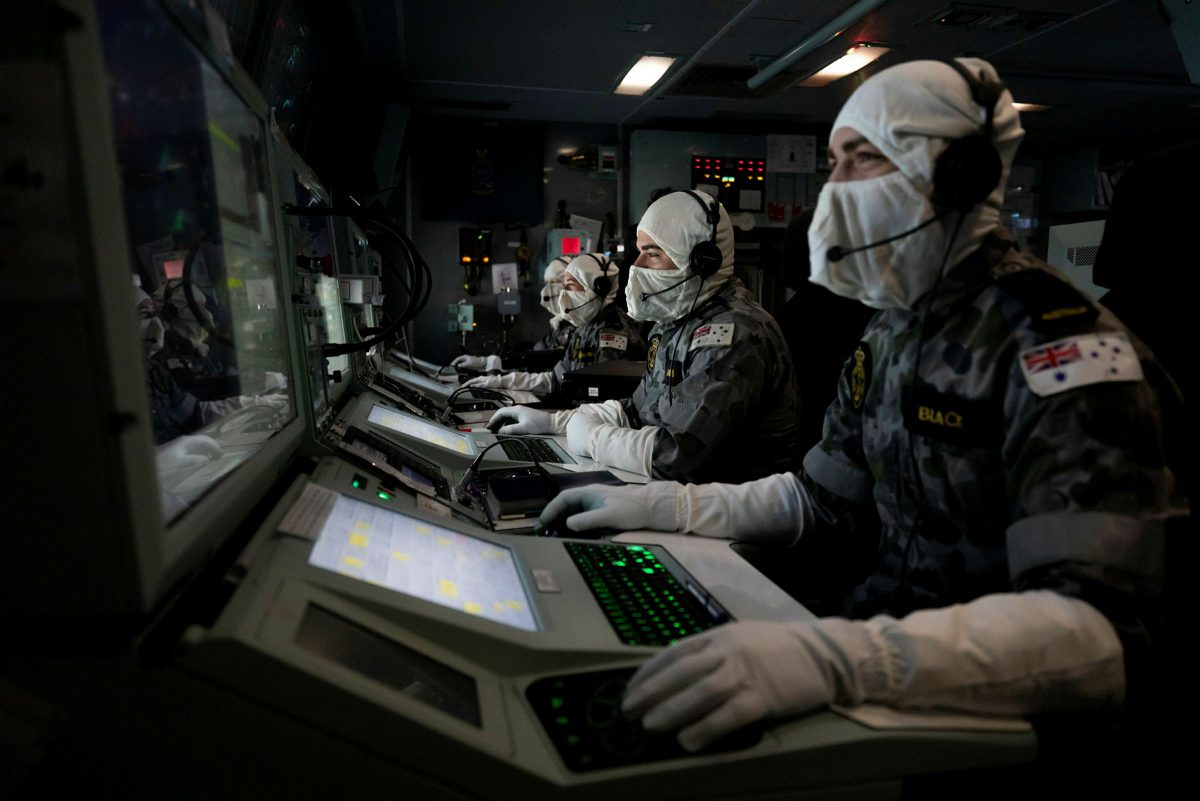My google fu maybe weak, as I have not come across much of any widespread in depth MSM reporting on the Solomon's deal or its potential ramifications. From the tone of this article, its superficiality, where its from and from the nature of NZs fairly accommodating behaviour towards China, I think we will be able to discern the mood music of NZ's actual reaction to the Solomon Islands wee agreement with China.
Should NZ be worried about the China-Solomons security deal? | RNZ
"These countries have a whole host of issues they have to deal with, from climate change to governance to accountability to poverty. I think it's a bit unfair to heap all these other issues on them to consider in establishing their diplomatic relations when even countries like Australia and New Zealand are happy to do business with a lot of these big powers that may do things that we don't agree with in other parts of the world."
As ever with politics its best not to look at what is said but what is done and not done.
I agree there appears to be some superficiality (within that article and interview), but I wouldn't go so far as to say it is a reflection of the NZ Govt's stance, far from it and quite the opposite actually it appears.
So firstly the "superficiality" of the article aspects, although admittedly I only played back half (~10min) of the recorded interview (earlier) it became clear the interviewer deferred a lot to the subject expert (Dr Iati), who then outlined a real concern of Pacific people in a general sense which is to not see their wider region "militarised" (be that CCP or even Western nations i.e. not by anyone), this isn't anything new and politically the (old) "left" (some politicians, peace movement, some in academia and media etc) have always promoted this.
It can be understandable from their experiences of WW2 where they found themselves caught up in the front lines of other people's wars coming uninvited to their lands, seas and skies (eg Japan and the US and its allies etc). Also NZ's previous less than exemplary "colonial administration" of Western Samoa from 1914 onwards didn't help (thankfully NZ and Western Samoa have come a long way from then - Samoa regained their independence in 1962 and relations have been mostly "excellent" since (excepting the odd issue like NZ citizenship for those that were born during NZ's rule).
Dr Iati also talked about foreign aid from the CCP (for various Pacific nations) and as per the article stated it was "normal relations". Yes that may be so as these nations are independent but I never heard words mentioned like "debt traps", nor poorly constructed CCP infrastructure that doesn't allow for much local employment in the first place (unlike A/NZ/US/Japanese/Taiwanese aid efforts etc), nor covert CCP activities influencing the political class, nor how many other Pacific peoples are concerned with CCP influence within their societies etc (perhaps he covered them later in his interview, I'll have to check, or on maybe other occasions? I did see another article where the good Dr was being criticised by a former PM of Samoa, who did seem to have "influential" connections with the CCP, so who knows).
As for the NZ Govt (and although our Foreign Minister Mahuta attracted a lot of flack when she took up the role - admittedly I was also somewhat skeptical) her responses to this Sogavare/CCP security agreement has actually been very forthright. The MSM haven't explained why but I assume it's partially related to what I said above about not wanting the South Pacific to be "militarised" and if it were then certainly not by a totalitarian and provocative regime which has no real connections to Pacific cultures and way of life, which are also largely democratic and (increasingly) supportive of minority and women's rights etc. Presumably FM Mahuta and her Ministry are looking at the wider picture in which the CCP play the long game so keeping any CCP militaristic ambitions curtailed will be of the utmost importance.
So at the moment I would say she is probably the best person for her role (as NZ FM) as one of her reported strengths is understanding and bridging together indigenous peoples, so this is where she and the Pacific Islands Forum comes into the picture, to lend voices to reason with Sogavare, let's see how this all plays out.
As for the NZG and defence in general, yes although this particular Labour Govt is also somewhat pacifistic (today's
NZ MSM mentions DefMin Penare actually wanted to send NZ Army Javelin missiles to the Ukraine but Cabinet didn't support him), the MoD's December 2021 Defence Assessment actually called for "radical" change to NZ's defence settings, by calling for a review of the current "risk management " policy approach, to that of a "proactive, strategy-led approach to defence policy".
113. The principal change we recommend is for New Zealand’s defence policy to shift from a risk management-centred approach to one based on a deliberate and proactive strategy, with more explicit – and explicitly prioritised – policy objectives. A more strategy-led approach would
better enable Defence – as part of broader national efforts – to pre-empt and prevent, as well as respond to, security threats, and better build resilience against the incremental impacts of climate change and other security challenges.
114. Changing approaches in this way will require more deliberate and rigorous prioritisation of effort, and some hard choices and trade-offs. And a more proactive strategy-led approach would still require Defence to respond to discrete contingencies: such a strategy would incorporate, not preclude, the requirement to maintain capabilities at readiness for situations in New Zealand and offshore. Ministers would still, as now, ultimately
determine how Defence capabilities are used.
Yes I think this NZG would still like to kick that can down the road (and unlike the recent Australian budget, I'm not hopeful much will change in the upcoming NZ budget in May), but if not later in this Govt's term eg later this year or next, then certainly the next Govt (polling trends suggest a change of govt in 2023) may see some long overdue changes to defence priorities and capabilities.
In some respects DefMin Penare's priorities of "People, Infrastructure and the Pacific" (perhaps unwittingly to Labour when they conceived these ideas) could actually be a helpful line in the sand. IIRC there is little in the way of public explanation as to what is to be done or expended on "P, I & P" apart from generalised statements on regenerating NZDF people capacity (since being caught up with the covid response and lack of wider training opportunities etc), upgrading old base infrastructure etc ... NZG needs make some "real" (enhanced) investments in "P, I, & P" to actually grow the three services over time (not just the Army as per previous coalition govt DCP19 plan) and increase infrastructure to cater for this as well as to include infrastructure for new capabilities.
Certainly the MoD/NZDF/NZG could look at Australia's plans to ramp up infrastructure (and capabilities) for real-life scenarios.
There are so many areas and shopping lists (so not going to go there now) apart from saying as well as the usual ISR, C4, network centric & maritime coverage needs etc, there needs to be prioritised efforts in the area of missile defence and offence (and the means to employ and deploy them).
For example, the RNZN are rather prudent planners, I would not be surprised if space and weight has been reserved on the ANZAC Frigates for canister launched anti-shipping missiles (there was a high end upgrade plan for the FSU upgrade which wasn't funded), if so let's plug into Australia's newly announced plans to replace Harpoon with Kongsberg NSM etc (which could also be a replacement for the Penguin ASM when the Seasprites are replaced).
Then there are the impending P-8A's requiring a long range stand-off missile, and arguably the need for coastal and air defence systems which where practical would also be air-transortable eg into the Pacific (eg if the CCP did gain a base in the Solomons?, as NZ did in WW2 where its forward defence positions moved up to New Caledonia and Fiji etc). If this sounds plausible does the NZDF need a type of all or joint ervices missile capability planning branch (as I wonder if leaving it to the three services eg some like Army may not prioritise these lethalities if they lack the technical expertise)?



